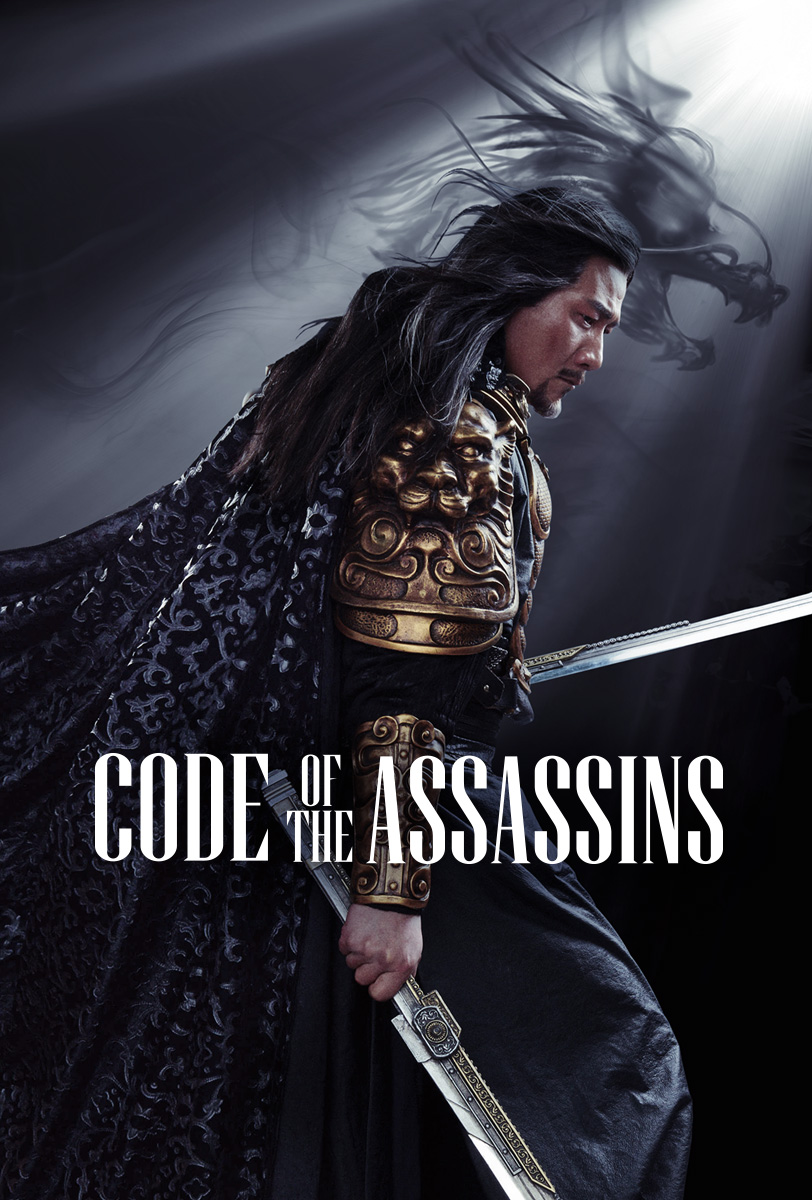
27 Mar Code of the Assassins Review
CODE OF THE ASSASSINS
dir. Daniel Lee, starring William Feng, Jun Hu, Gina Jin
After completing his training, an elite young assassin embarks on his first mission and is quickly ensnared in an intricate plot laid by powerful people pulling strings from the shadows. Upon failing to complete the assignment, he’s forced to go on the run– from the government and rival assassins alike– as he seeks to unmask the players behind the conspiracy.
Code of the Assassins starts with a strong premise: a rookie assassin is determined to get his hands on a copper treasure map, a stolen family heirloom foretold to be priceless. This McGuffin is the central conceit of the film’s first half until the story completely falls apart. Writer/director Daniel Lee’s attempt to create a tangled web of lies and deceit only succeeds at tangling itself, and suffers all the more for it. Boasting a whole bevvy of characters with colorful names and titles (Blue Asura, Black Judge, White Ghost), the film could’ve been better served sticking closer to it original intent than straying the path. Mixing a dollop of steampunk into the traditional wuxia setup (our main character has a detachable hand outfitted with a number of go-go gadget attachments), there’s definitely an element of cheesiness to it, but for a viewer that’s game and willing, that cheese can be its own source of entertainment. Assassins executing assassinations to assassinate assassins, the story comes to a head at the end of the second act as simultaneous murder attempts are taking place at the same event. The leadup to this is expertly crafted and well paced by Lee, with a surprising payoff that regrettably wastes its goodwill and starts to devolve the story in a third act that’s nothing more than a comical series of surprises and reveals (ah, you see, I suspected you knew but you knew I knew you knew, which I also suspected!). Secret affairs, hidden children, corrupt officials, and a group of killers who disappear from the plot entirely for a solid 50 minutes, the film is ultimately hampered in its inability to get out of its own way.
Starring William Feng, his second collaboration with David Lee after 2011’s White Vengeance, Code of the Assassins begins with the story centered on him as Blue Asura, the novice assassin with the most personal stake in the story. It’s unfortunate that the focus drifts away from him as more players enter, as the narrative focus gives way to sloppier storytelling. Feng is good in the lead role, a young man with a clear purpose as he navigates the intrigue and politics of the area. For his part, Hu Jun (who’s wonderful in his small amount of screentime in 2018’s Shadow) is likewise great in his role as the head general attempting to unravel the conspiracy while also spinning his own plates. One of the best surprises of the film is Gina Jin, appearing as one thing who’s revealed to be something else entirety. Almost everyone in this movie is wearing a false face and even though the alliances and motivations can be difficult to keep up with at times, the actors are doing their best to sell the subtle nuances in their performance, with mixed results.
Written and directed by David Lee (who also directed the highly entertaining Jet Li vehicle Black Mask back in the 90s), Code of the Assassins see the veteran director return to the type of films he’s made his name on. Action films are Lee’s bread and butter and this film is another feather in that cap. Not known for pushing the envelope or bringing a fresh sensibility to action, Lee’s films have been widely regarded as serviceable fare that entertain in the moment and are easily forgotten after the end credits. Such is the case with Code of the Assassins, a story that tries to be too clever for its own good while sill managing to provide some decent fight scenes. Mostly saved by great costuming and stellar production design (with the exception of a handful of dodgy green screen backgrounds), the movie proves that Lee is more adept at his directing than at his writing. Thanks to the highly stylized action, combined with some great music that would be at home in a 90s conspiracy thriller (out of place, but it oddly fits for the scenes), Lee managed to obfuscate his weak writing by applying some awesome technical work.
Overall, Code of the Assassins is a decent watch if you’ve exhausted all other options. With the most unnecessarily convoluted plot, the story can get lost in its attempts at complex intrigue, but there’s enough action to keep the viewer strung along from set piece to set piece. Daniel Lee’s writing is saved by his direction and while some of the acting isn’t quite up to par, the cinematography and production at least make for a visual experience that helps to smooth over some of the rougher patches. The combination of wuxia fantasy and steampunk makes for a unique touch, creating a world relatively unfamiliar to fans of either genre. While this blending of genres is enough to create a passing curiosity, the final product, while still somewhat entertaining, doesn’t live up to the promise. Code of the Assassins debuts exclusively on streaming service Hi-YAH March 3rd, and on Digital, Blu-ray, and DVD March 28th.
Review by Darryl Mansel


No Comments